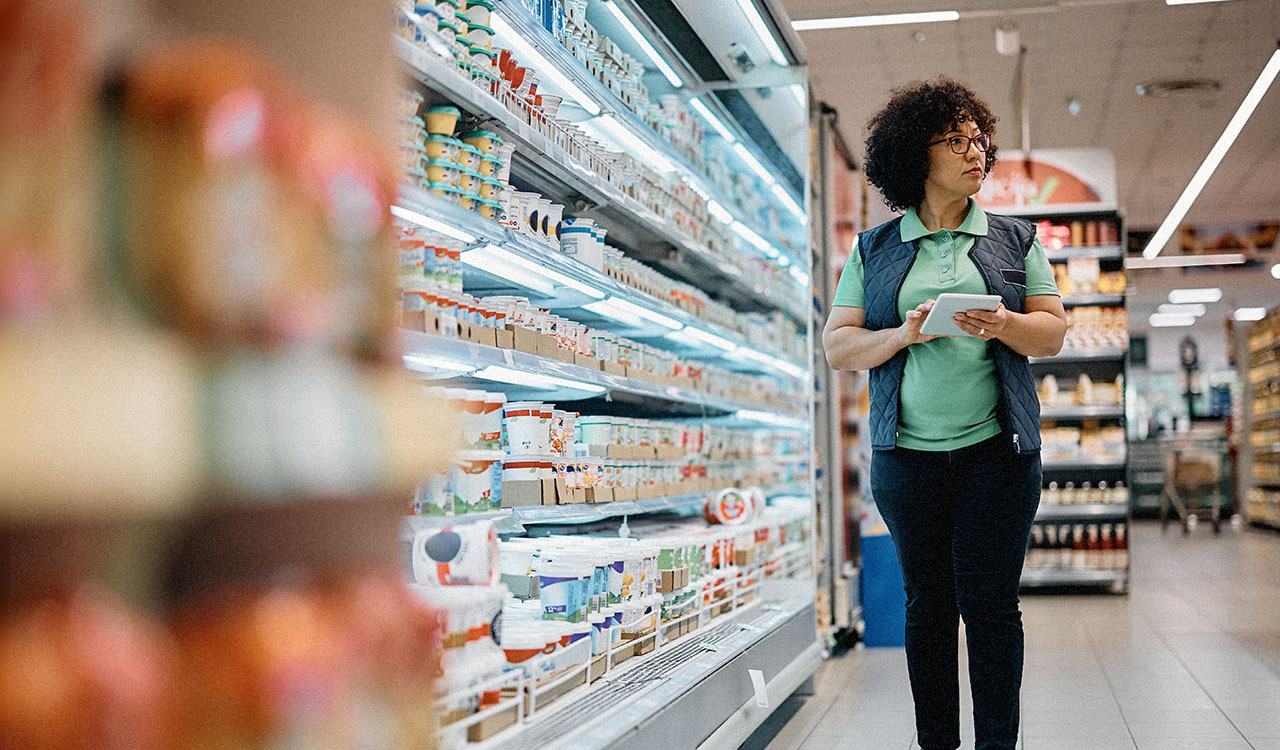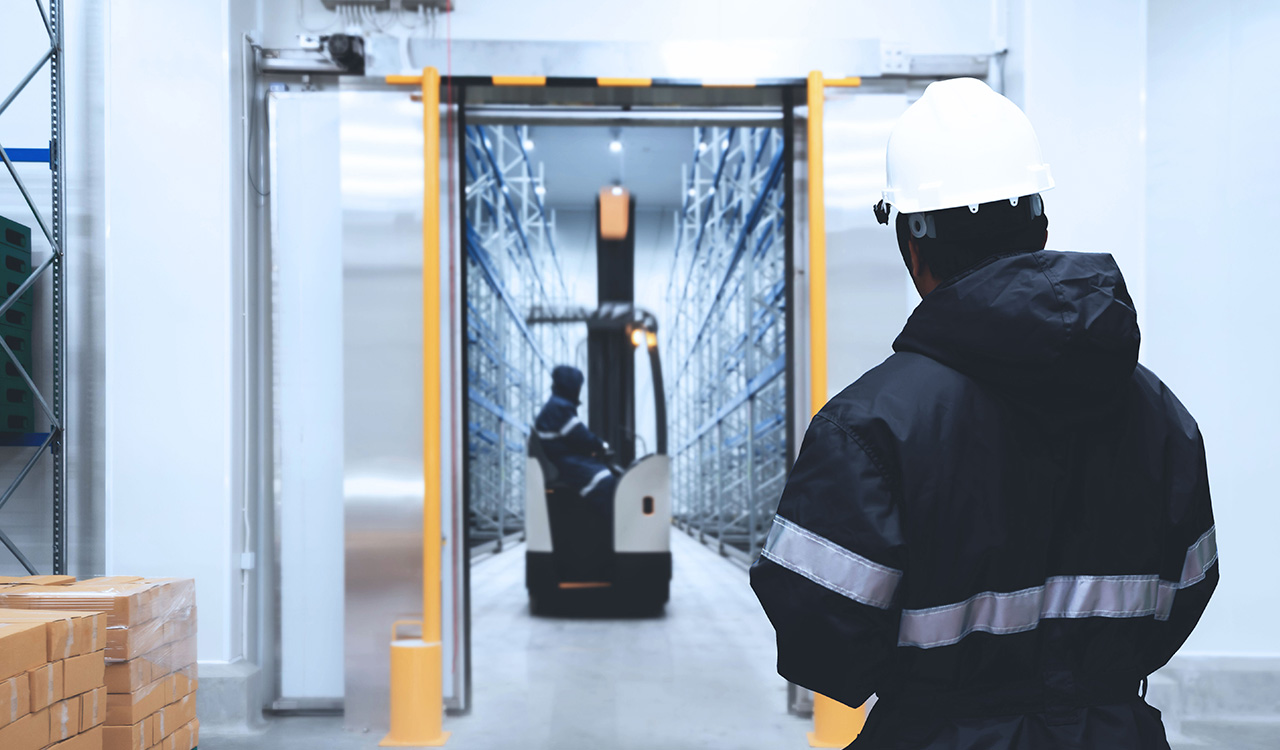We like our decade benchmarks. In 1961, JFK had his end-of-the-decade moonshot. Now after a stretch of corporate shoulder shrugging and lip service, CEO after CEO is announcing bold sustainability initiatives with 2030 as the North Star.
Al Gore, the sustainability siren, stayed true to his message at the World Economic Forum in Davos in January. Also, at Davos was Greta Thunberg a voice of the future consumer, demanding action on climate change to her global business audience. Perhaps Thunberg, with the weight of that future consumer behind her, embodies the reason that sustainability has moved from the backburner to the boardroom.
The Voice of the Future Consumer
Fueling the voice of both the current and future consumer is what Al Gore coined as the Information Superhighway. Consumers can discover and evaluate the positive or negative environmental impact of your business activities and publicize their findings. In this age of information exhibitionism, a commitment to sustainable development not only makes environmental sense, it is also a strategy to avoid reputational and bottom-line risks. The world is your witness, thanks to instant digital accountability.
Irrefutable Eco Facts
Sustainability 2019 is a Euromonitor survey of over 550 global professionals in 14 key industries. Findings include:
- The new era of sustainability is upon us with the next generation of sustainable leaders having a planet-positive mindset and the mantra of \”giving back more to the planet than is taken out.\”
- The circular economy is now seen as the new economic model for sustainable development, playing a key role in achieving the SDGs (Sustainable Development Goals). In this model, nothing is wasted, everything is shared, reused, repaired or recycled.
- Businesses need to adapt to evolving sustainability trends, not only to protect reputation, comply with legislation and achieve economic profit, but also to capitalize on new opportunities and increase long-term resilience and success. As a result, investment in the development of all sorts of sustainable solutions, from alternative ingredients and greener designs, to cleaner technologies and new business models is rising.
Eyes Wide Open
Patagonia was a lonely torchbearer for these principles for what seems like forever. Now Starbucks, Ikea, Mattel, Unilever, H&M and Microsoft, and others have onboarded. Starbucks CEO Kevin Johnson has been speaking out about the company\’s sustainability efforts in a series of interviews. In one such interview with Bloomberg TV\’s David Westin, Johnson said, \”We have been focused on sustainability for this last decade…we have innovated with our cups and our straws, but we have been episodic in the actions we have taken around sustainability…We felt it was time for us to think about what we could do to become a resource positive company. A company that gives more than it takes from the planet.\”
[callout]Patagonia has some surprising bedfellows on the quest for a sustainable future.[/callout]
In a letter to employees and customers, Johnson further explained, \”The journey we undertake is not only the right one for Starbucks responsibility as a corporate citizen of the world but is also fundamental to our brand relevance.\” The letter said it would strive to cut in half the total carbon emissions generated throughout its operations and waste its restaurants send to landfills by 2030. The company is also aiming to replenish half of the water used throughout its supply chain.
Shareholder Value
Milton Friedman\’s long-held principle is that the responsibility of a corporation is to maximize shareholder value. This doctrine underlies a finding in the aforementioned Euromonitor survey. It reported, \”30 percent of the professionals surveyed think that the lack of commitment by senior management or the board was one of the most significant barriers to investing in sustainability in 2019.\” While Friedman\’s dogma may still hold, the value of sustainable practices may be increasing in the eyes of stakeholders. Larry Fink, Blackrock\’s CEO (the firm is a major Starbucks\’ stakeholder) in his letter to chief executives wrote that the company would make investments in companies with sustainability as a core goal.
Sweden Goes Bold
IKEA has named its sustainability strategy \”People and Planet Positive.\” The company pledge:
\”We will strive to eliminate greenhouse gas emissions wherever possible across our entire value chain: sourcing and extracting raw materials, manufacturing and transporting products, our stores, customer travel to stores, product use in customers\’ homes and product end-of-life. We will reduce emissions in absolute terms, while continuing to grow the IKEA business. We will store carbon in land, plants and IKEA products and not rely on carbon offsetting. By taking a scientific approach and working together with our partners, suppliers and customers around the world, we will make this happen by 2030.\”
At the 2018 Bloomberg Sustainable Business Summit in London, WGSN reported that Cecilia Bransten, H&M\’s environmental sustainability manager discussed apparel design initiatives to make clothing more recyclable. \”Fewer materials make an item easier to recycle\” – that\’s something that begins at the design stage. Or thinking about how it can be mended and repaired from the start.\” She continued, \”Our vision is to become fully circular, but this means taking a holistic approach … this starts with design, where durability and quality come to the fore, but also looking at how our products can be repaired when needed and reused.\” Bransten said that companies need to think about products that are durable not only in the physical sense, but that they should also have \”emotional durability.\” She used personalizing products as an example of creating a meaningful connection to a product or offering other forms of customization: \”It\’s a wonderfully simple but powerful concept: if you love your clothes, you will keep them for longer.\”
Toys
I remember a large plastic children\’s castle that moved from family to family in my Brooklyn neighborhood. That was the Warren Street recycling initiative. Mattel recently announced its goal to achieve 100 percent recycled, recyclable or bio-based plastics materials in both its products and packaging by 2030. Lego is also taking action. The Danish toymaker is currently testing a free shipping used brick return and redistribution program in the U.S.
Wake Up and Smell the Coffee
While some sustainability initiatives are not specifically a 2030 goal, more corporate announcements are going on the record.
- Ford Motor Company and McDonald\’s USA have teamed up recycle the chain\’s coffee ground waste to create a light-weight filler used to secure the headlights of new cars. McDonald\’s is currently throwing away 1.2 million pounds of coffee waste which has led to Ford exploring other uses for the byproduct.
- Unilever plans to process and collect more plastic packaging than it puts in the market by 2025 and
- P&G has pledged to reduce the use of virgin petroleum plastic by 50 percent by 2030.
- L\’Oréal is introducing a limited refillable packaging program.
- Microsoft has funded a $1billion climate innovation fund, pledged to be carbon negative by 2030, and is aiming to remove historical carbon emissions by 2050.
- Amazon has pledged to make 50 percent of shipments net carbon zero and operate with 100 percent renewable energy by 2030.
Eco-Stewardship
I hope there are many more initiatives that I just haven\’t seen yet, but you get the idea. No matter what your opinion is, the fact is that it was warmer in Antarctica recently than it was in Beverly Hills. As corporate citizens, we can do our part and as leaders we can manage total stakeholder expectations. Perhaps Amazon can encourage consumers to choose a more eco-friendly delivery solution. It seems business is starting to tip toward action. Let\’s focus on that North Star before it is too late.
Do I really need those mason jars delivered tomorrow?




